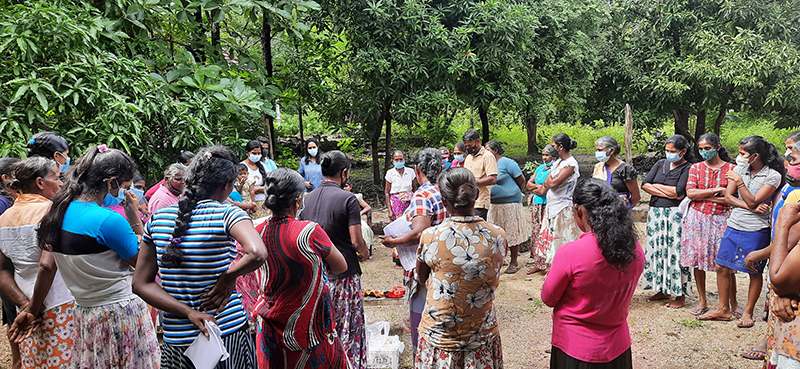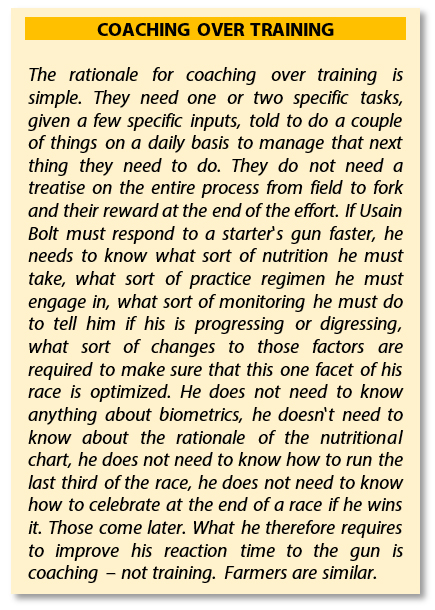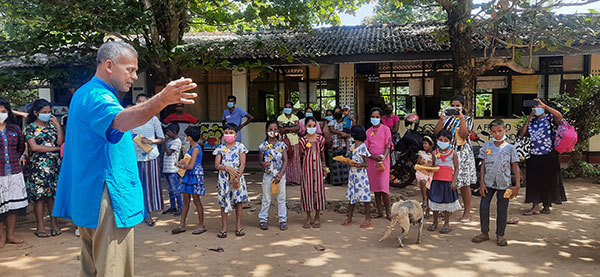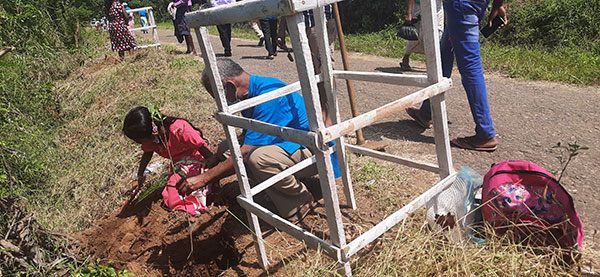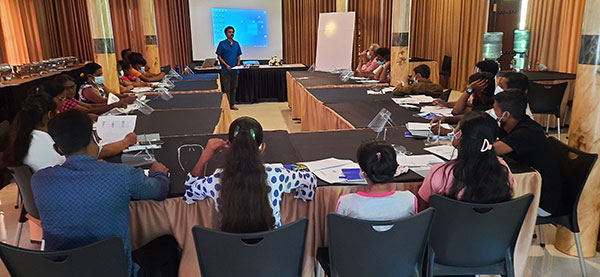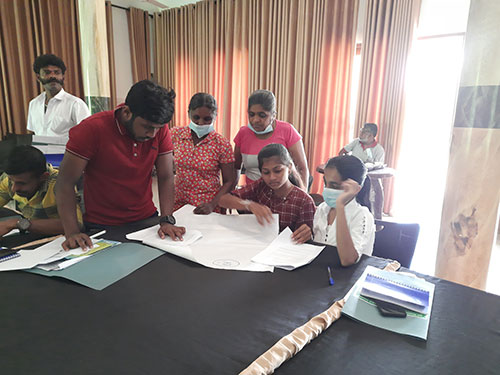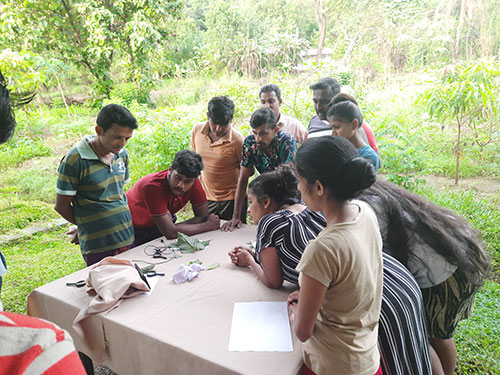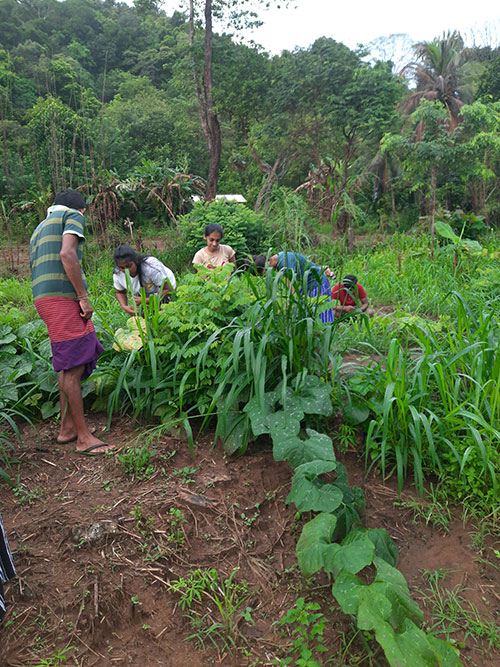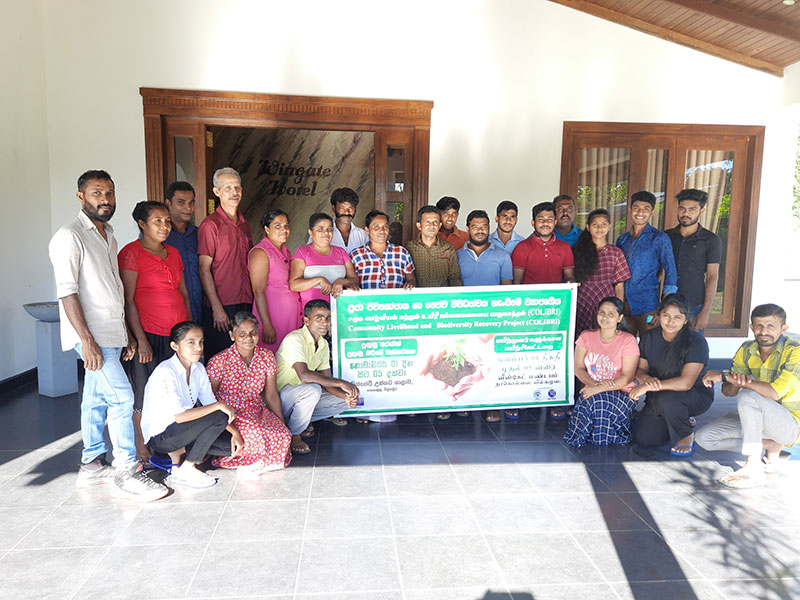The near disaster at Weheragala
Talk about doing things that make us laugh at our own selves for acting like babes in the rural development woods when we should have known better. “Woods” is the crux word in that sentence. Let us explain.
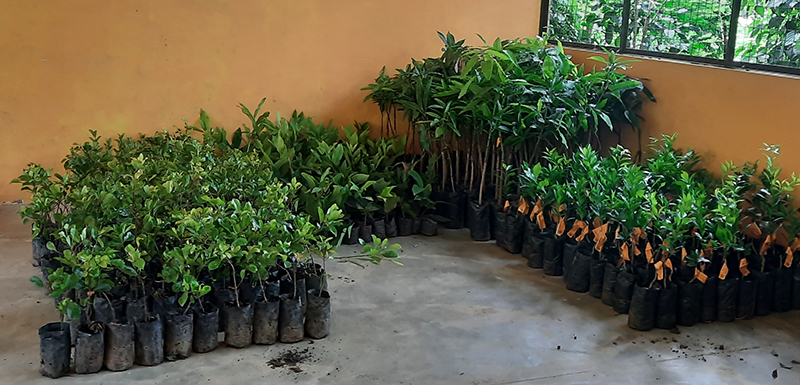
We got 18,000+ of the best fruit plants for distribution to our river basin communities
Weheragala was one of the observation areas for COLIBRI but our inception report indicated that we should not try to work with them because their soil toxicity levels were too high to be impacted by a short-term project. However, we did earmark 25 families in the area because it was strategically important to the upper KCF because it borders it downstream and is an entry point for various nefarious activities including setting fire to the woods. We went in initially thinking that we would work with that limited group to create a fire-belt but then realized that we needed to expand the treatment to increase ago-biodiversity in the area as both an incentive and a response in line with COLIBRI’s conservation-livelihood link. So we selected 114 families and provided them with 8 fruit plants each as a foundation for increasing overall green cover. Tragically, since this was a last minute addition, we never got a chance to visit those homesteads individually so we were completely unaware of what was actually happening. We can give a hundred excuses why we never did something fundamental to our type of development work but we won’t. We will simply say “we screwed up” because that is the short and long of it.
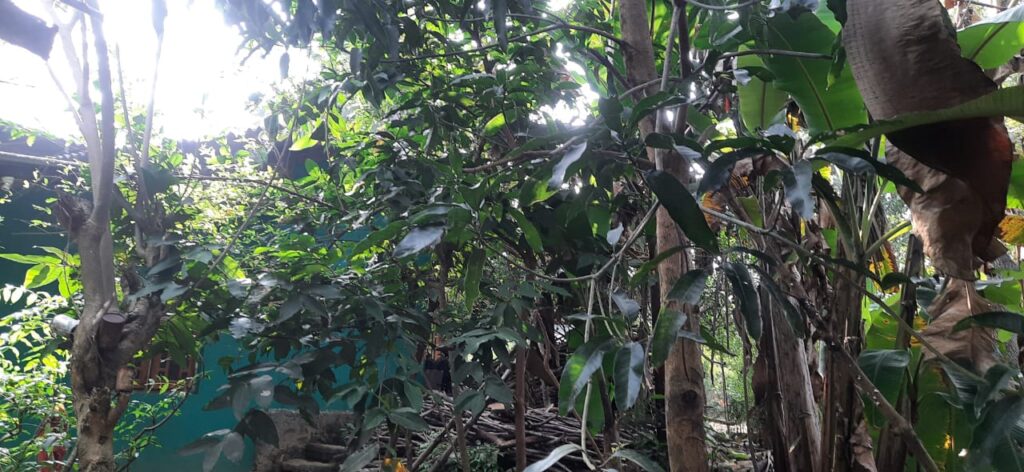
Home garden foliage so dense that no fruit or flower grew or was even required to be grown by these trees
What we hadn’t realized was that Weheragala was an NGO pea-soup. Every do-good mother’s son had gone in before us. NGO #1 gives them five fruit plants. The villages pick those up because they are given for free. NGO #2 gives them five fruit plants. The villages pick those up because they are given for free. NGO #3 gives them five fruit plants. The villages pick those up because they are given for free. They take all these inputs (most of them bad but some of them actually grow you know). They plant them willy-nilly on their small homesteads. There is no knowledge given to them on how to get a fruit harvest, how to manage their foliage and green cover or how to engage in postharvest storage. So, with decent amounts of water available and good soil nutrition because they had not used any agrochemicals on their own homesteads, these fruit plants grew into massive trees happy and content, full of leaves and…? Zero fruit. Why would a happy tree need to propagate itself? It is healthy and alive. It had never had any shocks in its life so all it had to do was grow and grow and grow.Those home “gardens” were no longer gardens. They were woods for crying out loud!
Enter the GMSL. We! In our naiveté, give them … you guessed it … not five but eight fruit plants. Granted we gave them superb specimens carefully selected, packed and transported. When we were distribution these plants, we were asked if we could give them 50kg fertilizer bags to plant them in, every alarm bell started to ring. Immediate physical visits to the homes were conducted and we found that every single one of them had a dense green canopy overhead that cut out most of the light. They wanted to plant our inputs in bags so they could shift them to those few areas where sunlight was actually available!
We did what anyone would do. We sat on a hypothetical rock, held our collective heads in our hands and shook them slowly from side to side. Stupefaction at our foolishness, disbelief at our silliness, horror at our unpreparedness were all thoughts that chased each other across our minds. It was actually laughable the way we had been taken in.
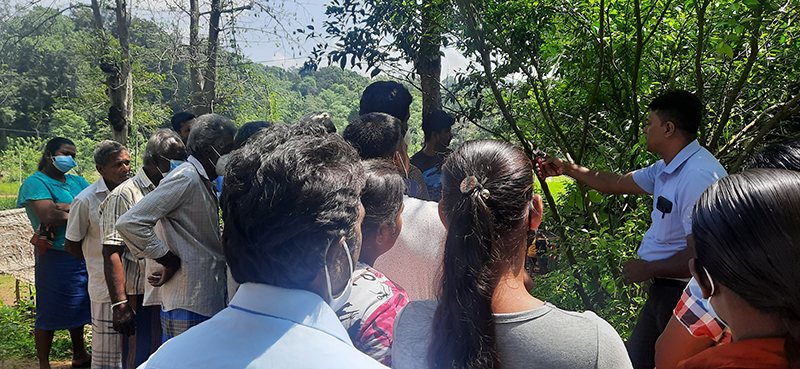
Department resource person training villagers on pruning techniques
Well, we were not going to simply sit by, shrugs our shoulders, smile inanely, take photos and leave. Nah. That’s not our way. We got people from the Export Agriculture Department and Forest Department to come and train those folks on how to prune their green cover to get themselves a proper yield as well as increase the footprint of sunlight on their gardens. Next, we told them how to optimize and redesign their gardens and most importantly we told them in no uncertain terms not to keep succumbing to the insane idea that everything given free is a good thing.
While we managed to significantly cut the losses and reverse any negatives of our unprepared intervention and actually gave them a better way forward, we made a mental note to do something we had not really done before. Check, before doing anything in any location for other NGO action because such action is not readily visible because well… most NGO action lives only as long as a project lives as we all know. We didn’t do it at Weheragala and we almost paid for it in an NGO disaster.
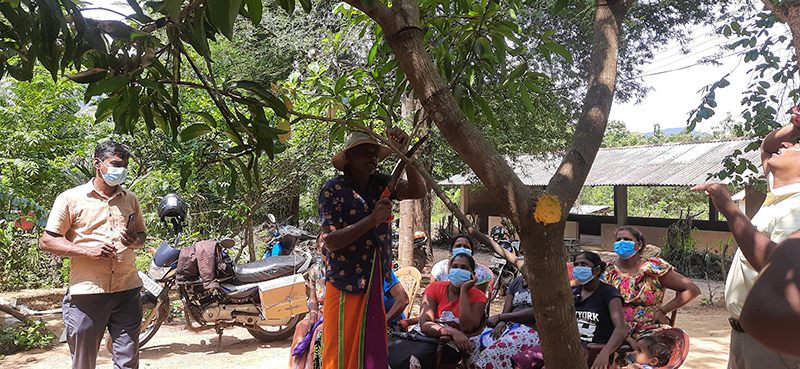
Villagers pruning their trees
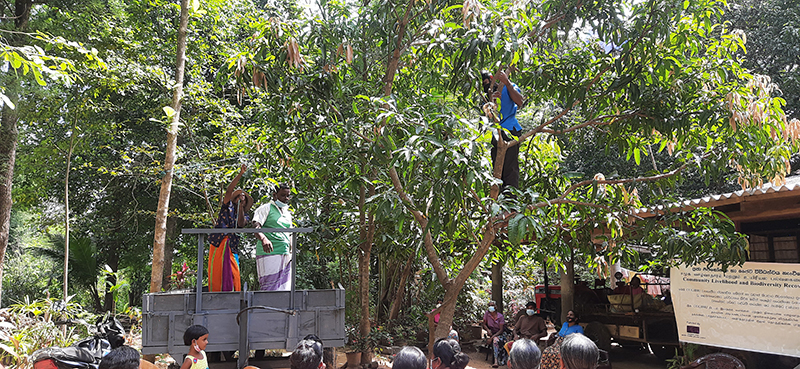
Villagers pruning their trees










